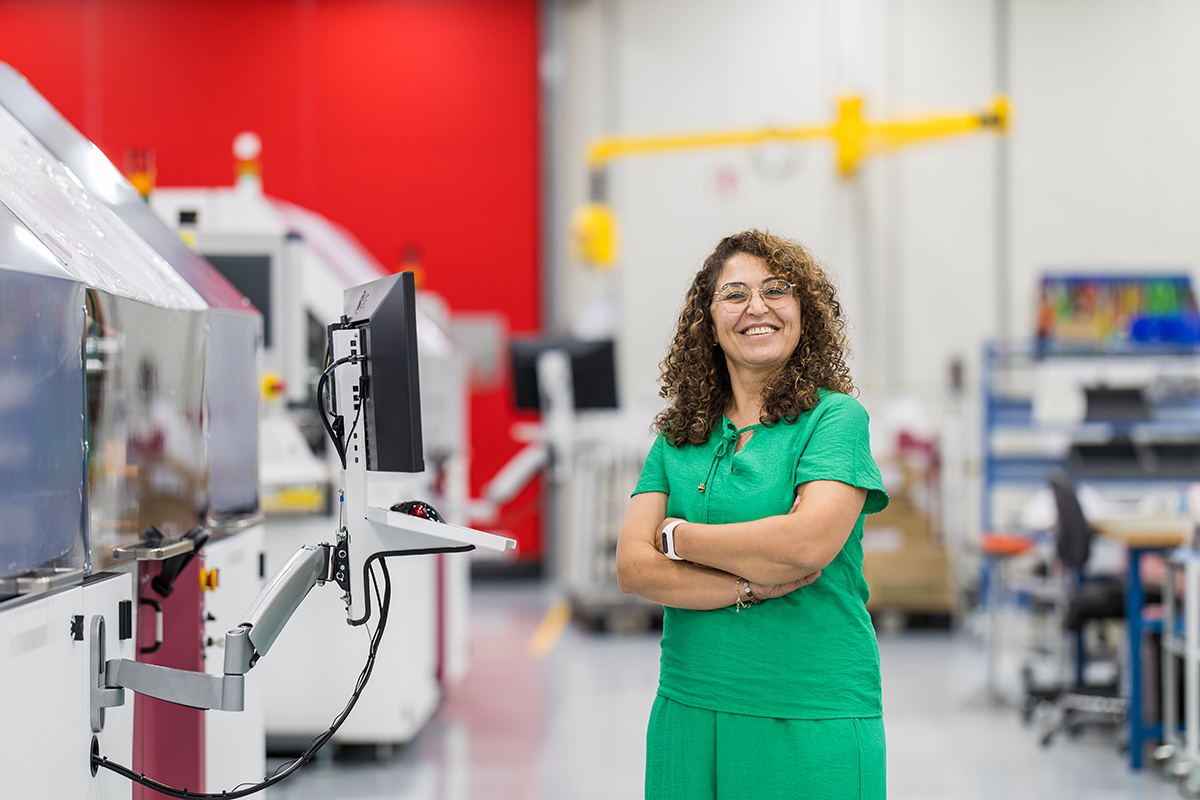Written by: Laura van der Burgt
Switching from a linguistic profession as a journalist to the beta world of technology: for software engineer Firuzan de Groof it felt like a logical choice. 'I chose journalism because I wanted to address and solve social problems. I still have that motivation, only now I am committed to a different platform. Our future is increasingly determined by technology, I think it is important to leave my mark on that as a woman’, she explains. Sioux gives her that space: 'Here, like me, they believe in diversity as a driver of creativity and innovation.'
As a journalist, Firuzan used words to analyse and discuss complex topics, nowadays she does so with data and algorithms. 'Although this work requires completely different skills, both professions are about discovering patterns, finding solutions and developing new insights’, she says. Her interest in technology arose partly because of her work as a journalist. 'The potential of technological innovation for societal challenges in the field of healthcare, education or sustainability is enormous. That really appeals to me.' When Firuzan noticed that she needed a new challenge, she decided to make a rigorous career switch. 'To outsiders it may seem like a surprising step, but to me it felt very natural: technology is my new tool to improve the world.'
Her decision did mean that she had to go back to school; Firuzan enrolled in the Software Engineering bachelor's degree at Fontys University of Applied Sciences. 'That was indeed quite a challenge, especially if you have been out of education for a while and also come from a completely different field. But if a woman wants something, she can achieve it. I firmly believe in that’, she says. 'In the first year, I spent a lot of extra time on maths, so that I understood the basics well. There were days when I studied for twelve hours.' Her dedication and perseverance paid off: 'For the first exam, almost half of the class scored a fail, but I passed! Then I knew I was on the right track. I found the mathematical subjects particularly interesting, but I especially appreciated the good balance between science and alpha subjects. As a result, I not only developed my technical skills, but also my analytical and creative thinking skills.'
In 2019, Firuzan obtained her bachelor's degree. Four years later, she applied for a job at Sioux. 'The reason for that was that I read in several articles that Sioux wanted to interest more women in technology. That made me curious’, she says. 'I believe that science and technology benefit from diversity in teams, so that different perspectives come together. During my application, I clearly noticed that Sioux sees it that way too. Technology is not an end in itself, but a means to improve people's lives. And if you want to connect with what people need, it's not just technical skills that are important, but also diversity in age, gender, and experience. For example, a woman's perspective can be very valuable if you want to improve breast cancer detection; only women know how painful a mammogram can be.'
As a journalist, Firuzan read and wrote a lot about the role women played in world history. 'Women have always had an important role in technology and science. Think of Grace Hopper, who co-developed the COBOL programming language, Rosalind Franklin who discovered the structure of DNA and Maria Telkes who developed the first solar heating installation’, she says. 'We often categorize women as more emotionally intelligent and men as more analytical, but the reality is that every person can develop both forms of intelligence. I therefore do not want to be seen as 'the woman in the team', but as a competent professional with a unique perspective. Because of my background as a journalist, I can, for example, build bridges between technical and non-technical people, which turns out to be a valuable quality for a software engineer.'
Nevertheless, Firuzan is well aware of the exemplary role she has as a woman in a sector that is still dominated by men. 'But I am the same as all other women: uncomplicated and strong. I would like to invite them to make the switch to Sioux as well, because there is a huge demand for new talent. This is the ideal place to develop yourself, earn a good salary and build a career, without running aground on stereotypical expectations. This work has not only increased my knowledge and skills, but also my self-confidence. I feel that I can really make a difference here. There are more and more boot camps and short courses available for women who want to retrain. These programs are intensive, but an excellent way to quickly develop new skills and enter the job market. The feeling of empowerment you get from that is more than worth it.'
